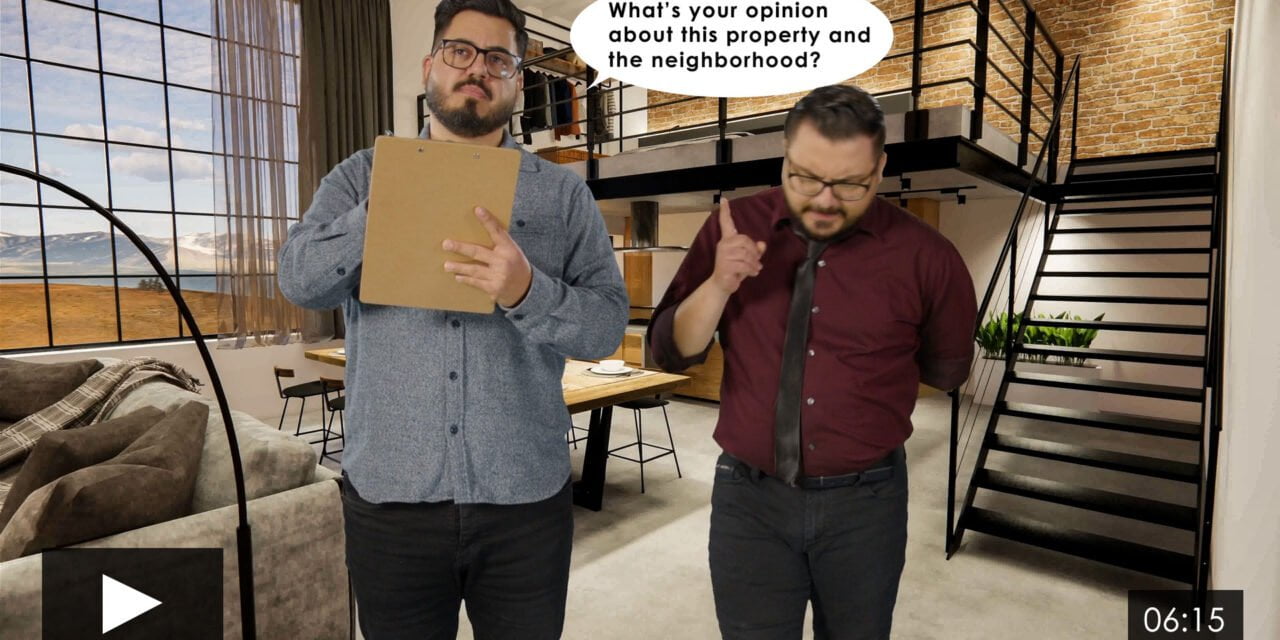This video covers a broker’s effective use of unlicensed assistants to perform administrative and nondiscretionary duties under the broker’s constant supervision and control.
Administrative and nondiscretionary activities
Brokers licensed by the California Department of Real Estate (DRE) may hire unlicensed assistants to perform administrative activities on their behalf and on behalf of their agents.
All employees of a broker need to be hired under written contracts of employment, including unlicensed assistants. [See RPI Form 507]
Further, a broker who manages transient housing or apartment complexes may hire unlicensed assistants to perform administrative and nondiscretionary duties. All of these unlicensed assistants act only under the broker’s supervision and control. [Calif. Business and Professions Code §10131.01(a)]
When assisting a broker who engages in the origination of consumer mortgages, an unlicensed assistant may perform administrative duties, such as information gathering and mortgage processing — activities which do not require a real estate license or mortgage loan originator (MLO) license endorsement. [Bus & P C §10137]
Thus, brokers may assign tasks to their unlicensed employees, such as:
- handling documents;
- performing tenant-related functions;
- canvassing for prospective clients;
- opening a property to third-party service providers; and
- communicating with parties to a transaction.
However, all unlicensed personnel performing on the broker’s behalf need to do so with the broker’s permission and their activities continuously supervised. [California Department of Real Estate Real Estate Bulletin, Winter 1993]
Handling documents
A common activity for an unlicensed employee is to act as a transaction coordinator (TC).
Here, the assistant, as TC, handles a sales file opened by an agent, reviews transaction documents from the client and confirms their completeness.
Documents and forms reviewed by a TC include:
- purchase and lease agreements, or other contracts;
- disclosure forms and reports;
- inspection reports; and
- escrow and title reports and forms.
Here, the TC is tasked with confirming the completeness of the documents. Any form or document not complete or fully executed by all required participants is brought to the attention of the agent. Only on the agent’s instruction may the document be forwarded to the client or participant for signing or acknowledgement of receipt.
TCs and assistants may prepare documents as instructed by the agent. Once complete, all documents prepared by the assistant are then reviewed by the agent or broker prior to delivery to any participant in the transaction. [See RPI Form 507 §2.5]
On instructions from the agent, an assistant may deliver or obtain documents relating to the transaction directly to and from the client. They may also obtain signatures on documents from any participant in the transaction. However, an unlicensed assistant may not discuss the content or significance of the document with any participant to the transaction — an activity requiring a DRE license. [DRE Bulletin, Winter 1993; see RPI Form 507 §2.6]
Property management: licensed and unlicensed activities
An employee hired to assist the broker in the rental and leasing of residential complexes, other than single family units, can be either licensed or unlicensed.
Unlicensed employees may perform tenant-related activities, such as:
- showing rental units and facilities to prospective tenants;
- providing prospective tenants with information about rent rates and rental and lease agreement provisions;
- providing prospective tenants with rental application forms and answering questions regarding their completion;
- accepting tenant screening fees;
- accepting signed lease and rental agreements from tenants; and
- accepting rents and security deposits. [Bus & P C §10131.01(a)(1)]
Licensed employees may perform any activities unlicensed employees perform. However, licensed employees are additionally able to perform activities relating to contacts with the landlord, as opposed to the tenant, about the leasing, care of the property and accounting.
Activities which only licensed employees may perform include:
- landlord-related solicitations;
- entering into property management or leasing agent agreements with the landlord;
- listings and rental or lease negotiations;
- care and maintenance of the property;
- marketing of the listed space; and
- accounting.
Allowing access to property
With the property owner’s permission, an unlicensed assistant may open the property to third-party service providers or transaction participants such as appraisers or pest control companies to perform inspections or repairs related to the transaction. [See RPI Form 507 §2.7]
However, an unlicensed assistant may not provide information to the service provider or transaction participant regarding the property unless they provide it as transmitted from a data sheet the agent has prepared. The assistant is also required to disclose the source of the data to the person receiving the information. [DRE Bulletin, Winter 1993]
Open house and marketing
With the property owner’s consent, an assistant may perform nondiscretionary activities while helping an agent at an open house for the sale of a property, such as:
- providing pre-printed facts sheets which the agent has prepared;
- arranging appointments; and
- greeting the public. [See RPI Form 507 §2.8]
Under the agent’s supervision, assistants may also prepare and design advertising, brochures and flyers in connection with the sales transaction.
However, when assisting an agent at an open house, assistants may not:
- show the property;
- discuss pricing, terms and conditions of the sale; or
- discuss amenity features of the property (e.g., neighborhood, schools, etc.).
Further, any solicitation beyond providing information approved by the agent, such as a flyer, may only be conducted by the agent.
Limited communications
Assistants may communicate directly with principals regarding:
- the timing of the delivery of reports or other information needed; and
- any information relating to the performance and completion of third-party services. [See RPI Form 507]
When communicating with the public, assistants may also provide facts to others from writings which the agent has prepared — again advising on the source of the data.
Hiring unlicensed assistants provides time-saving and organizational benefits and is essential to effectively managing the business activities of brokers and agents. Understanding the limitations imposed by the DRE and state law allows brokers to delegate activities to their assistants without crossing the line into licensed activities.














